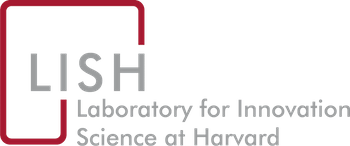Organization & Processes
Best Management Practices
Sustaining Open Innovation Through a Center of Excellence
Artificial Intelligence in Enterprise
. Working Paper. “Do Experts Listen to Other Experts? Field Experimental Evidence from Scientific Peer Review.” HBS Working Paper Series. Publisher's VersionAbstract
Managing Scientific Research
Integrating Crowds into Academic Labs
The Basis for Scientific Influence: The Value of Scientific Citations
Social Influence in Collective Decision-Making
Developing a Process to Foster Co-creation by Patients and Caretakers and our Research Communities
Technology Entrepreneurship: Lab to Market
Determinants of Scientific Knowledge Creation
Science Production Function Society
. 2018. “Charitable Giving in the Laboratory: Advantages of the Piecewise Linear Public Good Game.” In The Economics of Philanthropy: Donations and Fundraising, . MIT Press. Publisher's Version
. 2013. “Experiments in Open Innovation at Harvard Medical School.” MIT Sloan Management Review 54 (3). Publisher's VersionAbstract
